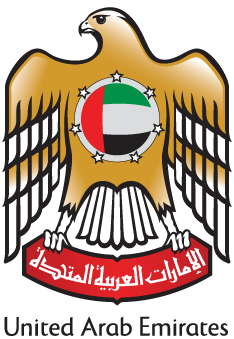EMERGENCY PREPAREDNESS
In 2020 FANR emergency preparedness and response efforts focused on maintaining the readiness of the FANR Emergency Response Organisation (FERO) through state-of-the-art arrangements, certifying FANR staff as FERO members, performing tasks as the UAE’s competent authority, and coordinating the implementation of the large scale IAEA exercise (i.e. ConvEx-3) scheduled for October 2021.
For ConvEx-3, FANR worked with the IAEA and other relevant organisations at national and international level to prepare for the exercise. Given the extraordinary circumstances imposed by the Covid-19 pandemic, several activities were implemented remotely. This ensured that the work plan defined in 2019 with the IAEA, other international organisations, neighbouring countries and UAE stakeholders was achieved. After in-depth discussions with relevant stakeholders in the UAE, proposals were made to the IAEA for international ‘injects’ and key UAE events at the facility level (i.e. on-site) and off-site for the ConvEx-3.
Emergency Operations Centre
The FANR Emergency Operations Centre was fully operational in the first quarter of 2020. In response to the Covid-19 pandemic and lockdown in March 2020, web-based tools were used for all activities including all FERO roles and interaction with other national, foreign and international entities.
FERO remains ready to respond to a nuclear or radiological emergency. In line with its internal procedures, FERO responded promptly to an event received from one of its licensees. The FERO on-call team closely monitored the situation until it was resolved.
Emergency Training, Drills and Exercises
FANR conducted a tabletop exercise in 2020 for the Abu Dhabi Agriculture and Food Safety Authority to support the latter’s roles and responsibilities, as per the Barakah Nuclear Power Plant’s Offsite Plan.
FERO participated in all applicable IAEA international exercises such as the ConvEx-2b exercise focusing on arrangements to request assistance from the IAEA. During this two-day exercise, FERO on-call members and health authorities reached agreement on the conditions of request for assistance.
As per the annual calendar of activities, FERO conducted two general training sessions (two days each) on emergency preparedness and response matters for FANR colleagues directly or potentially involved in responding to nuclear and radiological emergencies. This was complemented by specific training and tabletop exercises on the Joint Emergency Radiological Monitoring and Assessment Team (JERMAT) plan, FANR Emergency Management system (FEMS) for users and administrators, and the role of FERO’s executive team.
Competent Authority
As the competent authority for emergencies that may occur at national and international levels, FANR participated virtually in the IAEA 10th Competent Authority Meeting, which was held online due to the Covid-19 pandemic. The FANR Emergency Preparedness and Response team demonstrated the progress made to prepare for the UAE ConvEx-3, and ongoing arrangements for the exercise that is scheduled to take place in October 2021.
FANR staff also participated in two IAEA international Technical Group Meetings with several international organisations and neighbouring countries to discuss various ConvEx-3 arrangements. Several meetings were held to discuss meteoroidal data with the IAEA and the International Meteorological Organisation. At national level, FANR conducted 15 different meetings with national strategic stakeholders to discuss different ConvEx-3 matters and compile the exercise master event list. FANR staff also participated in four Barakah Nuclear Power Plant Exercise Committee meetings.
During the year, FANR updated the UAE self-assessment within the IAEA Emergency Preparedness and Response Information Management System (EPRIMS) to reflect the current arrangements in the country in terms of emergency preparedness and response.
As a competent authority, FANR worked with the IAEA to disseminate and support the implementation of training on the IAEA’s Ten Steps to Develop Emergency Preparedness and Response Arrangements, the International Radiation Monitoring Information System, Developing National Radiation Emergency Plans including the Hazard Assessment, Classification, Assessment and Prognosis and Nuclear Power Plant Emergencies; First Response to Radiological Emergencies; WHO Framework on Mental Health and Psychosocial Support in Radiological and Nuclear Emergencies; Radiation Monitoring during the Fukushima Nuclear Power Plant Accident; Communication and Information Exchange during a Satellite Re-entry Emergency, Command and Control System, Medical Response to Nuclear and Radiological Emergencies; and IAEA Assistance during Nuclear and Radiological Emergencies.



